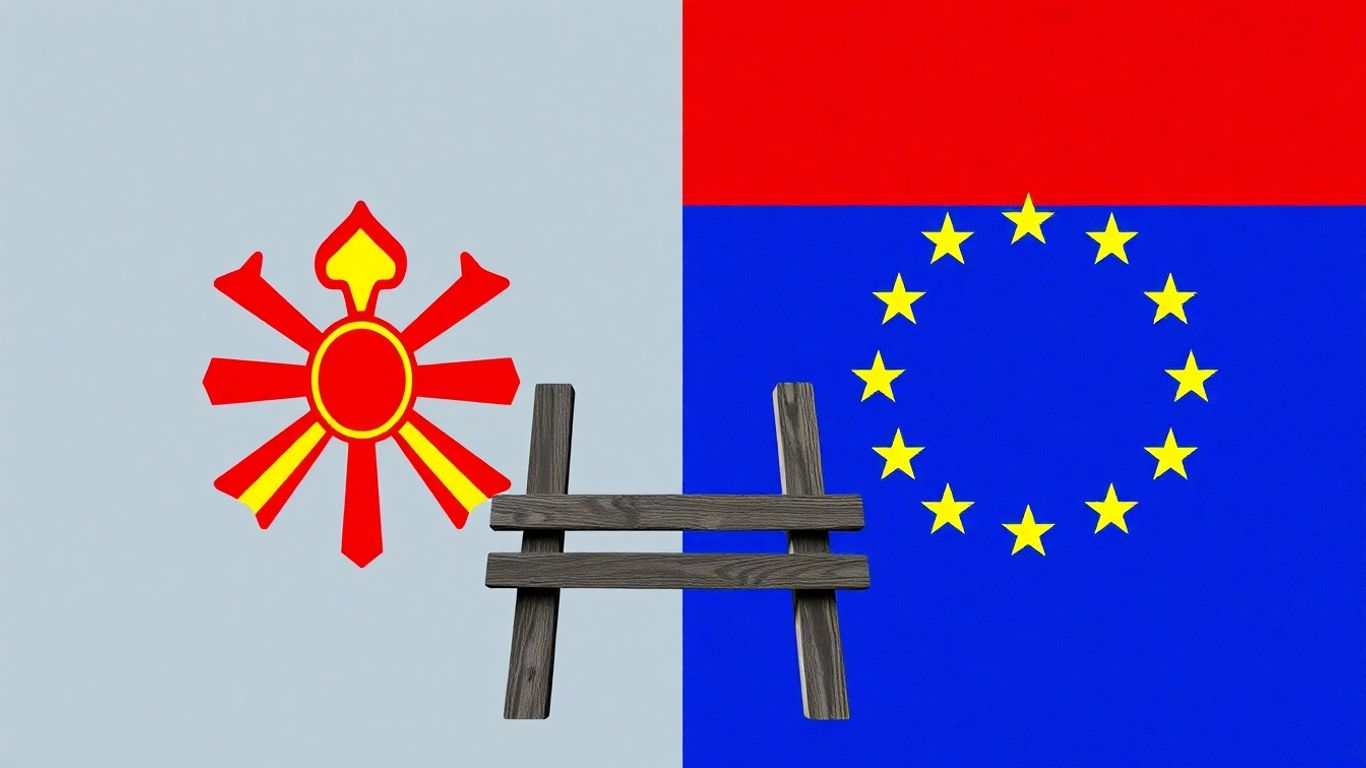North Macedonia is facing significant hurdles in its bid for European Union membership, with top EU officials urging the nation to make crucial "era-defining" decisions. The country’s accession process remains stalled primarily due to a dispute with neighboring Bulgaria over historical and identity issues, compounded by broader regional security concerns.
Key Takeaways
- EU foreign policy chief Kaja Kallas has urged North Macedonia to take "era-defining" decisions to advance its EU membership bid.
- A key obstacle is North Macedonia’s need to amend its constitution to recognize a Bulgarian minority, a condition set by Bulgaria.
- Prime Minister Hristijan Mickoski insists that Bulgaria must first approve North Macedonia’s membership before any constitutional changes are made.
- The EU emphasizes that the integration of the Western Balkans is crucial for regional peace and security, especially in light of the war in Ukraine.
- North Macedonia’s Deputy Foreign Minister has warned of potential Russian interference aimed at inciting ethnic clashes in the Balkans.
The Bulgarian Sticking Point
European Union’s High Representative for Foreign Affairs and Security Policy, Kaja Kallas, visited Skopje to encourage North Macedonia to move forward with its EU accession. A primary condition for advancing the membership talks is the amendment of North Macedonia’s constitution to include a formal recognition of a Bulgarian minority. This demand, set by Bulgaria, has become a major political flashpoint within North Macedonia.
Prime Minister Hristijan Mickoski has stated that his government will only consider constitutional changes if Bulgaria first approves North Macedonia’s EU membership. He emphasized that the accession process should be based on merits rather than bilateral disputes, calling for a "two-way street" in negotiations.
Regional Stability and External Pressures
Beyond the bilateral dispute with Bulgaria, North Macedonia’s Deputy Foreign Minister, Zoran Dimitrovski, has raised concerns about potential Russian interference in the Balkans. He warned that Russia might exploit unresolved conflicts and ethnic tensions to destabilize the region through proxy players, aiming to prevent Western Balkan countries from joining the EU. Dimitrovski highlighted that while NATO presence is significant in the region, vigilance against such provocations is necessary.
The EU views the integration of the Western Balkans as a vital strategy for ensuring peace and security, particularly in the context of the ongoing war in Ukraine. Kallas reiterated that the non-integration of the region poses a security risk, and that the EU is ready to support North Macedonia in strengthening its rule of law, fighting corruption, and modernizing its public administration.
A Long and Winding Road
North Macedonia, along with Albania, began EU membership talks in 2022 after years of delays, largely due to Bulgaria’s previous veto. While Albania has made more progress, North Macedonia’s path remains obstructed. Prime Minister Mickoski has expressed frustration, noting that his country has faced unique challenges over the past two decades, hindering its progress despite receiving positive recommendations for negotiation talks as far back as 2008.
North Macedonia is seeking to discuss the issues blocking its EU path with Bulgaria during an upcoming NATO summit, hoping for the involvement of top EU and NATO officials. The country is eager for a dignified and lasting solution to end what it describes as continuous blockages stemming from bilateral issues.
Sources
- EU presses North Macedonia to make ‘era-defining’ decisions for membership, AP News.
- Russia may incite ethnic clashes in Balkans, North Macedonia’s Deputy FM says, Ukrinform.
- North Macedonia’s path toward full EU membership stalled by impasse with Bulgaria, AP News.
- North Macedonia wants EU, NATO at its talks to settle row with Bulgaria, Reuters.
- Kallas backs North Macedonia’s EU membership progress despite ongoing obstacles, Euronews.






